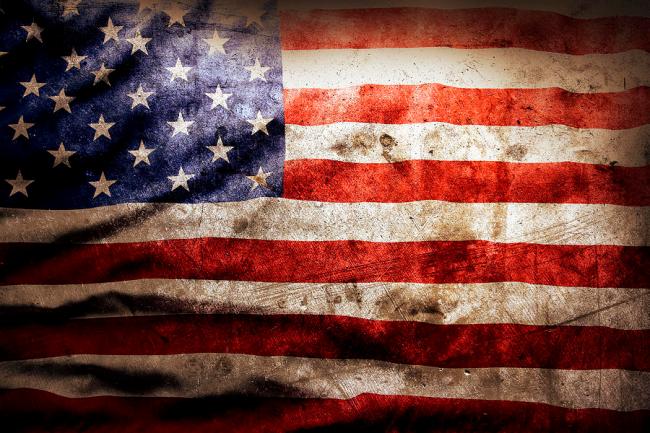This post, I must confess, is self-serving; to what degree I can’t honestly say. Deep down, I think I want to have it saved for posterity, for my own future need to look back and see what at one time was upon my heart and mind.
Politics is a matter which we bitch about because it’s easy to do, but we are very quick to become bent about if our political sensibilities (now there is an oxymoron for ya) have been tampered with.
To that end I advise any who are of staunch political mind, unbending and draconian, to forego reading the missive below. Conversely, if you are the type who like a number of viewpoints, if you have an open mind, then please read on.
I had a completely new reader leave a nice long comment on one of my posts regarding the damaged flag that was flying in Mesa. We have traded a couple e-mails, and along the way she has mentioned that she attends meetings of the Red Moutain Patriots, a local Tea Party group. Part of what you will read below entails her conveyance of what I believe are the party’s ideals; I have not checked these against any official Tea Party dogma, but frankly I find that I almost seamlessly align myself with them. As I have stated a number of times before on this blog, I am a registered Independent. I try to vote for the individual I feel will most care for my country . . . not their party.
What you see below is my last reply to her which she called “eloquent.” While I’m not so sure about that I am — at least at this moment in time — certain of its convictions . . . my convictions.
 Rarely have I ever practiced, nor involved myself, in political intrigue, nor the least manner of governmental politics. Assuredly there is some subconscious form of politics we play in our every day lives, if only the game of cat-and-mouse we necessarily employ in everyday relations. The sweat exuded from the labor of commonly defined ‘politics’ is a foul brew, laced with the stench of rotting lies and fetid, nauseating pretentions in the guise of truth.
Rarely have I ever practiced, nor involved myself, in political intrigue, nor the least manner of governmental politics. Assuredly there is some subconscious form of politics we play in our every day lives, if only the game of cat-and-mouse we necessarily employ in everyday relations. The sweat exuded from the labor of commonly defined ‘politics’ is a foul brew, laced with the stench of rotting lies and fetid, nauseating pretentions in the guise of truth.
Our counterfeit “leaders” bellow and bluster, thrust and parry, keeping their hands ever active under their cloaks, endlessly accepting tithings from special interests and foes of the people while facing the cameras with the practiced, hollow compassion of a freshly buried corpse. Upon the political stage all pretense of country is gone, reconstituted in a fervent passion of partisanship — unity only counts if it lines your pocket and consolidates power.
I believe it could be strongly argued that we, the people, have, for too long, actively abetted these usurpers, given them every device and means necessary to keep us at bay and themselves in control. We cannot consider ourselves blameless if we are to truly understand and respect the admonitions and just wisdom of our forefathers.
We have frittered away the true power vested in us, or at the very least allowed others around us to do so. We have allowed our students to leave public schools with scarcely the tiniest nugget of functional knowledge about American history, not to mention how such forces as a free market economy or genuine self-governing work.
As I read what I have written thus far it is obvious that I am profoundly frustrated, even heartbroken, that my country has sunk to the level we are at. As I have studied early American history it has become ever clearer to me that we are almost too far off the path tread by our earliest brothers and sisters. We are, I dare say, in some way aping the timeline of the Roman Empire, if only far more quickly.
And we all know how that story ended.
I can steadfastly get behind the codified principles you have listed:
• We believe the Constitution to be the Supreme Law of the Land . . . Is there another? Has there ever been another, save for that of Providence which itself is written into the Constitution as clear and justified basis for the natural rights of all.
• We stand for Limited Government . . . Jefferson stated “Government is best which governs least.” Government is “absolutely necessary” for very few things, and those are laid out and explained in the Federalist papers. Self-government was the initial concept and has since been something abdicated to those who have ceremoniously claimed it as a latent birthright, a power not bestowed by the people rather by the stain of big money.
• We stand for Free Enterprise and Capitalism . . . Communism has failed miserably. Adam Smith and Karl Marx were on two opposing ends of the economic spectrum. I’m fairly certain China, South Korea, and Cuba won’t see the light in our lifetime, but it will happen eventually. As time has proven, free enterprise has consistently provided more opportunities for more people than any other form of economy. Mistakes made along the way were the mistakes of man, not of Nature.
• We stand for Fiscal Responsibility . . . Where has this gone? It would seem fewer and fewer of our children are learning it.
• We stand for State Sovereignty under the 10th Amendment of the Constitution . . . States know best what works for their people, not the Federal government. I am of the mind that certain matters overlap, but those are few indeed.
• We stand for Border Security first and laws that oppose illegal immigration . . . I welcome, with open arms, those who truly desire to be here; those who clamor to participate in what America is; those who want to love America as we do. I have no room in my heart for those who want to use her as a resource to advance their own corrupt governments or bleed us of resources because their own are long since surrendered to liars and cheats, despots and traitors. Amnesty is nota solution, not even an acceptable starting point for debate.
Now it seems that I am the one who has droned on. I am so glad you have come along and informed me of your equal love for our country, and that there are others who share your (our) passion.

What most people don’t realize is the power we have. Most believe that our power lies in our right to vote, but that’s only partly true. It is in our power to organize, to gather our collective voice, to move and remove, to needle the process, to assert ourselves within the framework of self-government that we truly bring our power to bear. But, as these folks in East Mesa are doing, we need to speak out, to gather and educate, to avail ourselves of the knowledge that others will freely share.
And once that’s done, we need to ask ourselves questions, not simply accept everything we’re told. Evaluate what’s been said, juxtapose expressed ideals against our own.
These folks are doing just that. Whether or not you agree with them (and there are plenty who don’t) you have to respect them for taking a stand and doing what’s right, even in the face of almost overwhelming adversity.
Read Full Post »
 Stories of familial ties to the invasion of Normandy rarely brushed by our ears, but the couple times they did an indelible impression was left.
Stories of familial ties to the invasion of Normandy rarely brushed by our ears, but the couple times they did an indelible impression was left.







